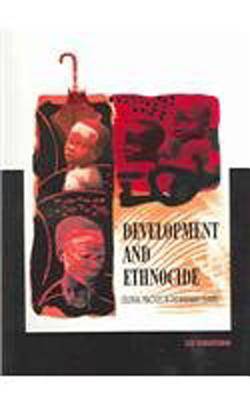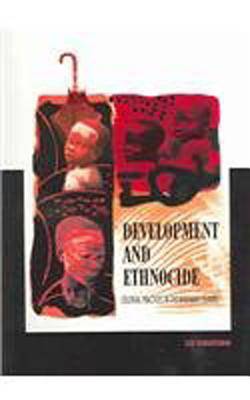
Bedankt voor het vertrouwen het afgelopen jaar! Om jou te bedanken bieden we GRATIS verzending aan op alles gedurende de hele maand januari.
- Afhalen na 1 uur in een winkel met voorraad
- Gratis thuislevering in België
- Ruim aanbod met 7 miljoen producten
Bedankt voor het vertrouwen het afgelopen jaar! Om jou te bedanken bieden we GRATIS verzending aan op alles gedurende de hele maand januari.
- Afhalen na 1 uur in een winkel met voorraad
- Gratis thuislevering in België
- Ruim aanbod met 7 miljoen producten
Zoeken
€ 32,45
+ 64 punten
Omschrijving
This book is an ethnographic account of colonialism in the Andaman Islands, Bay of Bengal, India.
It examines the links between colonialism and development under British and Indian administrations, and analyses how the different indigenous groups (the Andamanese, the Onge, the Jarawa and the Sentinelese) have responded differently and been affected in different ways by colonization and the everyday dynamics of colonial administrative practices. It emphasizes particularly the dynamics of power and gender. The books also looks at the present situation of the Jarawa who, until recently, were known as a people that avoided contact with the sorrounding society. The book concludes with a section on current advocacy initiatives being spearheaded by civil society organizations and scholars aimed at securing the Jarawas' right to territory and to choose for themselves which future they want. The book includes an appendix containing the 2003 'Draft Policy on the Jarawas' (by Shri K.B. Saxena, member of the Expert Committee on the Jarawas) as well as an alternative Jarawa policy framework drafted by a group of independent experts and observers, of which the author is a member.Specificaties
Betrokkenen
- Auteur(s):
- Uitgeverij:
Inhoud
- Aantal bladzijden:
- 264
- Taal:
- Engels
- Reeks:
Eigenschappen
- Productcode (EAN):
- 9788791563041
- Verschijningsdatum:
- 1/01/2004
- Uitvoering:
- Paperback
- Formaat:
- Trade paperback (VS)
- Afmetingen:
- 172 mm x 239 mm
- Gewicht:
- 562 g

Alleen bij Standaard Boekhandel
+ 64 punten op je klantenkaart van Standaard Boekhandel
Beoordelingen
We publiceren alleen reviews die voldoen aan de voorwaarden voor reviews. Bekijk onze voorwaarden voor reviews.












